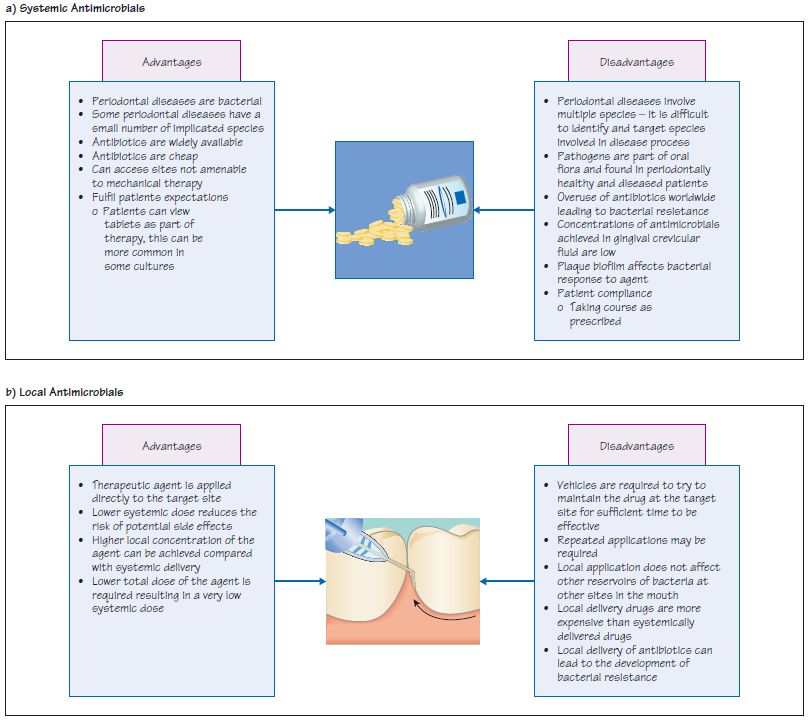23
Role of antimicrobial therapy in periodontal diseases
Figure 23.1 Advantages and disadvantages of using antimicrobials for periodontal diseases.

Periodontal disease has a bacterial aetiology and therefore much work has been done to investigate the potential role of antimicrobial drugs in the management of periodontal diseases. Mechanical therapy can not always access all subgingival deposits or reach bacteria that may have invaded soft tissue or dentinal tubules. Also, treated sites can be recolonised by pathogens from non-dental sites. Antimicrobial agents can be delivered by systemic or local routes.
Systemic antimicrobial therapy
Systemic antimicrobial agents have a role in periodontal therapy in a few specific clinical situations:
They are not indicated for the treatment of chronic periodontitis.
Aggressive periodontitis
Systemic antimicrobials can be used as an adjunct to root surface debridement. It is important to remove the plaque biofilm in order for antimicrobials to be most effective. Although root surface debridement in these cases can improve the clinical condition, a number of studies have shown that this alone can fail to significantly reduce the number of Aggregatibacter actinomycetemcomitans in the subgingival flora. The use of systemic antimicrobials can be effective in reducing A. actinomycetemcomitans. The effectiveness of treatment may be enhanced if debridement can be completed in a short time period while the drug is being taken.
Antibiotic regimes that are supported by the literature include:
Antibiotics can also be used in combination with surgery in aggressive periodontitis.
Necrotising ulcerative gingivitis and periodontitis
Stay updated, free dental videos. Join our Telegram channel

VIDEdental - Online dental courses


